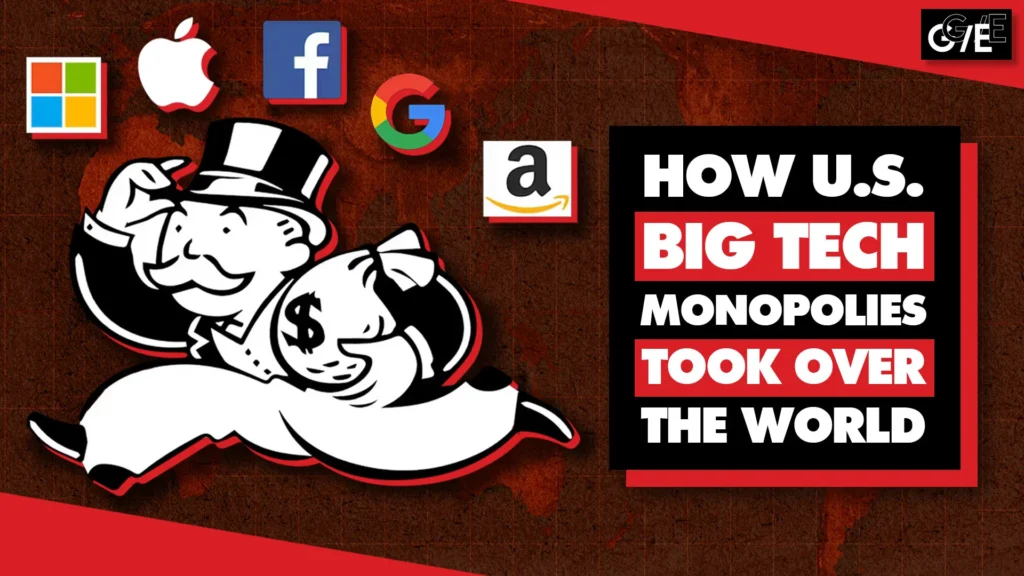Physical Address
304 North Cardinal St.
Dorchester Center, MA 02124
Physical Address
304 North Cardinal St.
Dorchester Center, MA 02124

Big Tech companies like Apple, Google, Amazon, Microsoft, and Meta have fundamentally transformed how we live, work, and connect. These digital giants wield unprecedented influence over our daily lives, from the smartphones in our pockets to the algorithms that curate our news feeds. But are these technological titans a force for good or a threat to society?
The answer isn’t black and white. While Big Tech has delivered remarkable innovations that have improved countless lives, it has also raised serious concerns about privacy, competition, and social impact. Understanding both sides of this complex equation is crucial for navigating our digital future.
Before we dive into the pros and cons, let’s define the term. “Big Tech” describes the largest and most dominant companies in the information technology industry. Their dominance isn’t just measured in market capitalization (which is often in the trillions) but also in their:
Ecosystem Lock-in: They create interconnected suites of products and services that make it difficult for users to leave.
Data Control: They possess vast troves of user data.
Market Reach: They serve billions of users globally.
Influence: They shape cultural, political, and economic trends.

The scale at which these platforms operate makes effective content moderation incredibly difficult. False information can spread rapidly, potentially influencing elections, public health decisions, and social stability.
Key challenges include:
Governments worldwide are grappling with how to regulate Big Tech effectively. The European Union’s General Data Protection Regulation (GDPR) set new standards for data privacy, while antitrust investigations in the United States are examining whether these companies should be broken up.
Potential regulatory approaches include:
Big Tech companies have undoubtedly brought remarkable benefits to society, from life-changing innovations to economic opportunities. However, their immense power and influence also pose real risks to privacy, competition, and social well-being.
The solution isn’t to abandon technology or demonize these companies entirely. Instead, we need thoughtful approaches that harness technology’s benefits while addressing its drawbacks. This requires collaboration between tech companies, regulators, and users to create a digital ecosystem that serves everyone’s interests.
As consumers, we can make more informed choices about which platforms to use and how to protect our privacy. As citizens, we can advocate for policies that promote both innovation and responsibility. The future of Big Tech isn’t predetermined it’s something we’re actively shaping through our choices and actions today.

The question is no longer if Big Tech has downsides, but what we do about them. The path forward likely involves a multi-pronged approach:
Individual Digital Literacy: As users, we must educate ourselves on how these platforms operate. We can take control by curating our feeds, adjusting privacy settings, being critical consumers of information, and consciously limiting our screen time.
Smart, Adaptive Regulation: Governments worldwide are grappling with how to regulate this sector. Potential solutions include updating antitrust laws for the digital age, implementing strong data privacy regulations (like GDPR in Europe), and establishing clear transparency requirements for algorithms.
Corporate Accountability: Big Tech companies must move beyond profit-maximization at all costs and embrace their ethical responsibility. This means investing far more in content moderation, prioritizing user privacy by design, and ensuring their algorithms promote well-being, not just engagement.
Big Tech’s influence is double edged. On one side: innovation, global access, convenience, and transformative technology. On the other: concentration of power, privacy erosion, climate impact, and unfair market dominance.
The path forward lies in pragmatism not rejecting everything or accepting uncritically, but defining a future where tech giants can innovate responsibly, users are empowered, and competition thrives. Balanced regulation and enlightened policy is the bridge to that future.